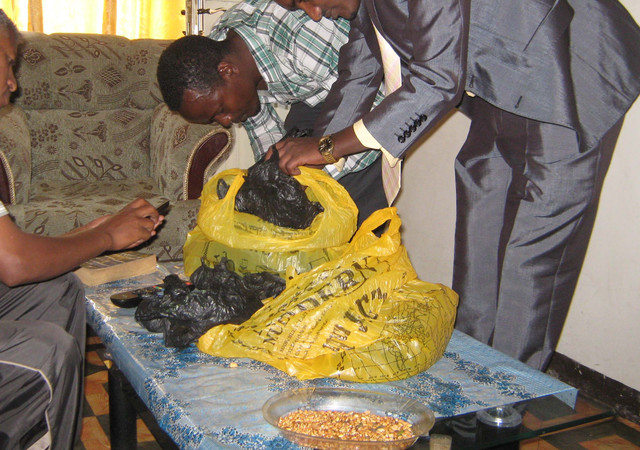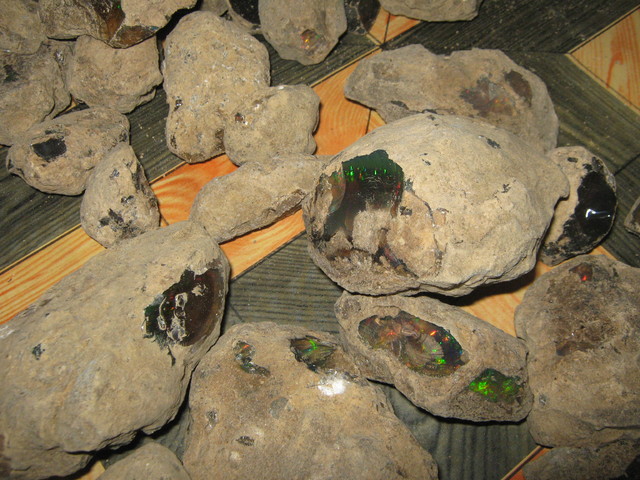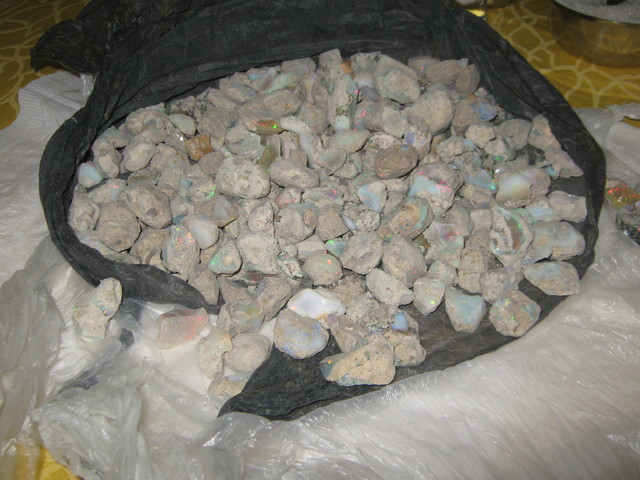Update On Opal Mining in Ethiopia
In 2013 the Ethiopian Ministry mines had implemented a policy that rough opal experts would be banned and prices went to record levels as everyone wanted to own an Ethiopian opal before the sanctions started
It was a complete shamble, so the ministry changed their policy
The policy now in 2016 is that Opal exports must be linked with buyers purchasing cut stones as well as rough opal
40% of budget has to be appropriated to cut stones.
So purchase of $10,000 has to be $4000 of cut stones and $6000 of rough opals
The problem is there is not many opal cutters in this country as most of the rough is cut in India and the Ethiopian Ministry Mines has a minimum unit price for Gemstones for export
Opal is set at Minimum $8.00 per carat
And this is high minimum price per carat for bulk purchase
On top of this the buyer has another Government charge based on weight and has to send the funds via wire to an Ethiopian based person to pay for the opals.
Rumours are that the policy will change again in July 2016
So far government intervention and regulation has not resulted in starting new business for opal cutting factories
Government policy is that local cutters should cut the opal and not exported to India to cut
But it is proving difficult to get local cutters to cut volume opals as quickly and efficiently as Indian cutters, who have reputation as the worlds quickest t and cheapest opal cutters.
Rumours also abound that some Indian cutters send cut opals to Ethiopia so they can buy their own opals back to meet these government regulations.
So many rumours as in 2013, all repeated again and lot information cannot be clarified
The new opal fields in Welo Ethiopia have had up to 20 mining deaths since 1990 with 7 being reported killed in one accident in the Wegel Tena field
.



Update from May 2013 The Ethiopian government will ban the export of Rough Opals-
The opal is found in levels on the eroded hill sides and if mining is done with out proper supports the roof can collapse.
It is obviously a very dangerous job even in a situation where a high level of precautionary and protective measures are taken. Accidents can happen.
The government has supplied villages with basic mining tools but even safety hats are not supplied. It is hoped future mining courses will educate the miners and make it safer.
Since 2011 the government has sent solders to patrol the opal fields and to get permission is very difficult.
Permits are needed now to buy Ethiopian opal and also permit is required to export the opals and even to visit the opal mines a special permit is required.
Many opal miners left the welo opal fields for this reason.
In one month in 2011 over 80 illegal opal miners were arrested as it is so difficult to obtain permits
Production in 2012 has been stable but now the wet season starts in May and opal mining slows down as so difficult to travel or work in the torrential wet months.
Was this article helpful?
12 people found this article helpful
Opal Auctions
- Written - 9th May 2012
- Edited - 20th Jun 2024

Did you know?

Opal Auctions Verified Sellers










